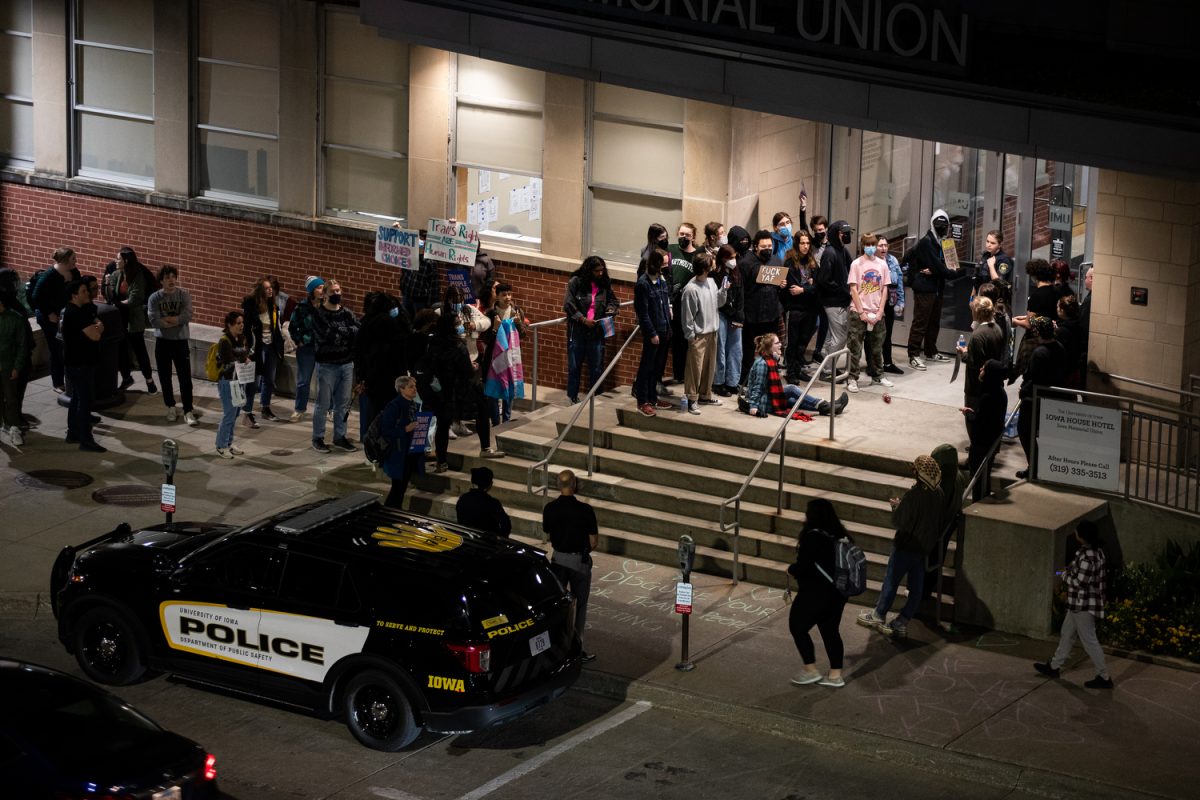Iowa City’s Human Rights Commission released a statement on Wednesday condemning the arrests of several transgender and nonbinary protesters in Iowa City, as well as the state government’s treatment of LGBTQ+ Iowans as a whole.
The commission called for the dismissal of charges against seven people made nearly a month after a protest on Oct. 16 against the lecture of conservative speaker Chloe Cole and for local law enforcement agencies to review how future protests are handled.
The individuals arrested all identify as transgender or nonbinary, according to the commission’s statement, and they were charged with disorderly conduct and interference with official acts. The seven arrests prompted a separate protest on Dec. 8 against the arrests and an Iowa law signed in March that banned gender-affirming medical care for transgender youths.
One individual arrested, Tara McGovern, has rejected a plea deal and opted to go to trial over their charges. Their trial will begin at the end of February.
After the Chloe Cole protest charges, an additional nine demonstrators were arrested on Dec. 9 by the University of Iowa Police Department after chaining themselves to the doors of Kinnick Stadium.
The Kinnick demonstration was live-streamed on Instagram by the Iowa City Students for Justice in Palestine group, which is not affiliated with the UI. The group then posted photos and videos documenting the arrests made by UIPD officers, some of which were reportedly aggressive and violent arrests.
The individuals arrested were charged with trespassing causing damage greater than $200, interference with official acts, and disorderly conduct.
In its statement, the IC Human Rights Commission described that the charges were made for blocking traffic, a common act in public demonstrations.
“Their charges are under a new ‘back the blue’ law passed in the wake of the 2020 protests of the murder of George Floyd that specifically criminalizes a standard practice of protest: blocking traffic,” the statement read. “The arrest of transgender protesters raises important questions about the actions of law enforcement and the broader functioning of the justice system.”
The law mentioned, Senate File 342, expanded the general definitions of charges like criminal mischief, disorderly conduct, assault, and harassment, among many other changes to laws and penalties surrounding public demonstrations.
The statement also referenced Articles 19 and 20 of the United Nations’ Universal Declaration of Human Rights, which read that “Everyone has the right to freedom of opinion and expression; this right includes freedom to hold opinions without interference and to seek, receive and impart information and ideas through any media and regardless of frontiers,” and “Everyone has the right to freedom of peaceful assembly and association.”
The commission also noted that it is often the most marginalized community members who are harmed by laws like SF 342 and that those who stand up for their rights should not be “pushed down,” to avoid the spread of unimpeded discrimination and hate throughout their community.
The commission encouraged Iowa City law enforcement in the statement to review how future protests are handled.
“We encourage all community members to be active in support of one another: stand up and speak out when you see targeted discrimination and urge our elected officials to protect the human rights of those most at risk,” the statement read.



